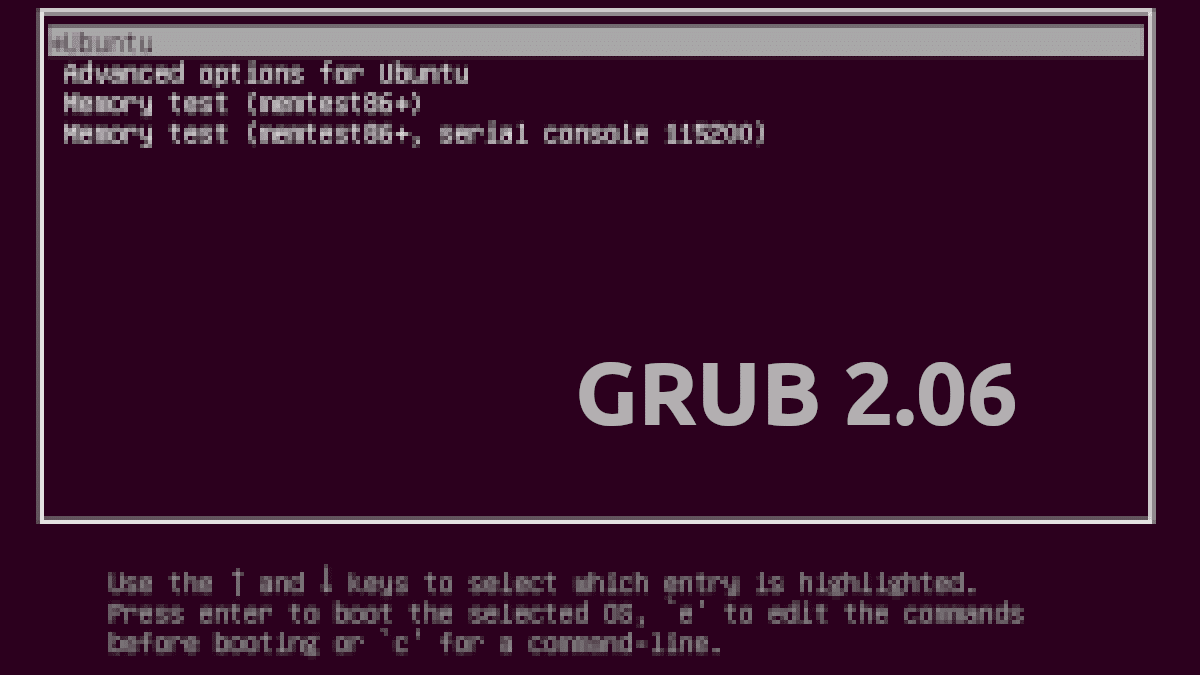
I, who started using Linux in 2006, still have a certain sense of "danger" every time I read this word. It's not really bad, but when you have problems with it and you don't know how to fix them, the bootloader fails can be translated in having to reinstall and lose information. In addition, in this type of managers there may be vulnerabilities and bugs like the ones you have corrected GRUB 2.06, the new version that has arrived a year late and about two after v2.04.
The GRUB 2.06 release was scheduled for 2020, but it didn't come. The exact reasons have not been made public, but we already know that 2020 was not the most normal year in the world. Also, more recently were found bugs that had to be corrected, so, as has always been said, it is never too late if the happiness is good and if the delay is for a good reason. Available to test from March, now has been launched su stable version.
GRUB 2.06 Highlights
- Several patches have been included to make it more consistent. Until now, many distributions managed things in their own way. After working together, this has changed.
- Support for SBAT.
- Now supports LUKS2 encryption volume.
- Support for Xen Security Modules (XSM / FLASK).
- BootHole / BootHole2 security fixes.
- Support for GCC 10+ and Clang 10+ in what is not an update to the latest versions, since already GCC 11 y clang 12 They have already released their respective stable versions.
Bootloaders are very sensitive parts, so it is not recommended (although you can) install or modify them on your own. In addition, the different Linux distributions add the new packages as updates as soon as they can, so, I think, it is not worth taking any risk, especially for users of a distribution whose development model is Rolling Release.
Configuring / home in separate partitions, or if you have several GNU / linux, the data of Documents Images, Zotero Downloads etc in another partition, changing those of / home in each OS for their respective links to always have at hand «yours» you It avoids that in cases of problems with GRUB there is a risk of data loss due to reinstalling, at most some configuration or the list of programs that can be automatically backed up if they are so crucial.